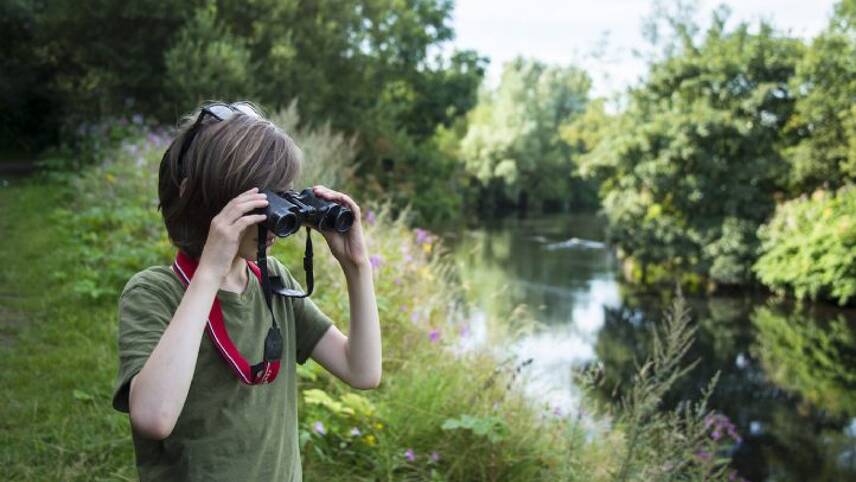Register for free and continue reading
Join our growing army of changemakers and get unlimited access to our premium content

The Northern Forest will be planted over 25 years, and across 25,000 hectares of land stretching from Liverpool to Hull. The plan is to plant 50 million trees, across a generation. We know where they can go and how it can be achieved. If trees are planted in the right place, we know that we can: reduce the risk of flooding for up to 190,000 people; create thousands of new jobs; store thousands of tonnes of carbon; and of course, make the citizens of our great Northern cities and regions happier, and healthier.
This is more than just a ‘nice to have’ environmental project. The government’s own figures put our existing woodland resource as being worth £1.8 billion to us in terms of social, environmental and economic benefits.
The estimate is that for every 250,000 of new hectares planted, £500 million of social benefits are generated each and every year. Using this government methodology, the return on investment for the Northern Forest all be somewhere in the region of five to one.
Of course there are the benefits you can’t put a price on. A woodland walk with someone you love. A child climbing up their first tree. A riot of autumn colour that reminds you, yet again, how much you like the season after summer.
Whichever metric you use though, the Northern Forest makes a compelling case and as a result has generated a huge amount of interest since its announcement in January.
This week, Yorkshire Water was the first business to land as a major contributor to the Northern Forest, announcing plans for 1 million trees to be planting, which will offer huge environmental benefits and help the utility company manage water quality and flooding across its patch.
There are a number of key ways in which business could play an active part in the Northern Forest and the project partners are actively looking for more organisations large and small to come on board to help to deliver against there ambitious target.
One key way, of course, will be to align their own corporate strategies for going ‘zero carbon’ with the opportunity that planting trees offers to offset emissions in local areas that connect with customers and stakeholders alike. The Northern Forest will, it is hoped, offset around 7 million tonnes of carbon once planted, which would help to make a decent dent in any corporate carbon footprint (after a raft of stringent energy efficiency measures have been implemented, naturally).
The Northern Forest will also be a live opportunity for developers, large estates managers and housebuilders as it will offer a platform from which new trees and woodland can be fully integrated into new built environment schemes. The evidence base assembled for the Northern Forest shows that this could deliver an immediate uplift in property values too. One study based in the Northern Forest area showed that a view of a natural landscape added up to 18% to a property’s value, and that homebuyers would be willing to pay £7,680 per household for views of broadleaved woods.
The third role for business will, of course, be through their social responsibility programmes. Already the community forests around Liverpool, Manchester, Leeds and Hull already organise community engagement and planting days for businesses, while there is also a direct opportunity to sponsor, and pay for, new planting schemes which will enhance corporate reputation and give a green brand boost.
The team working on this – of which we are part – have a fierce logic to back them up. The Northern Forest partners – the Woodland Trust and Community Forests – have drawn up a compelling prospectus for their plans. We start with a clear case for a major economic uplift from increased property values and regional attractiveness. We then move through reduced carbon emissions, greater ecological resilience – including from flooding – the need for more timber and timber planting, benefits for health and air quality, and the biodiversity boost to be expected.
The Northern Forest is an idea that fits this moment in time perfectly. As a recent parliamentary enquiry rightly pointed out, planting rates have virtually stalled in this country, even as we struggle to try and raise our levels of woodland cover to a fraction of those enjoyed elsewhere.
Across England, only 10% of our land area is covered by woodland. In Scotland that stands at 18%, and in France, Germany and Spain it is 31%, 33% and 37% respectively. England’s woodland cover is only just over a quarter of that enjoyed, on average, across the rest of Europe. Our planting level for new trees in the year 2015-16 stood at just 700 hectares; some argue that if you look at the amount of trees being removed in cities like Sheffield for example, we are in truth seeing a net decline in our woodland cover at the moment, while policy and common sense alike says we should be headed in the opposite direction.
We have a plan to transform the Northern landscape to make it more resilient, even more beautiful and more prosperous too. There is an evidence base, a strong partnership and a vision we can follow. Business has a part to play, centrally in making it happen.
For people, nature and for the economy, we will plant 50 million trees for a future we can all be proud of.
Endnote: Creative Concern is one of the partners in the Northern Forest project.



Please login or Register to leave a comment.